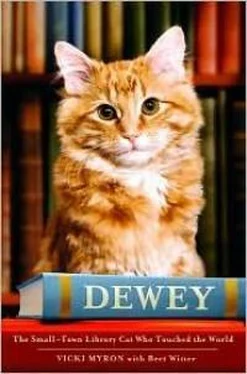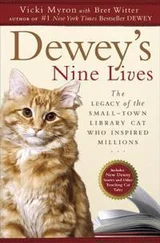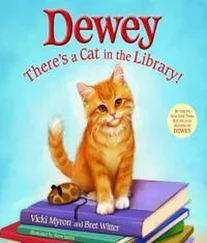I was nineteen years old, young and stupid. I promised. I never told anyone about that night, but I know now that mental illness often strikes young men, especially bright and talented young men in their early twenties like David. I know David was ill. He was as ill as Steven had been, but it wasn’t as obvious. Slowly, his condition pulled his life downward. Within a few years, he was a different person. He couldn’t hold a job. He couldn’t laugh, even with me. He started taking drugs, downers mostly, to combat depression. He fathered a child out of wedlock. He called me every few months, and we talked for hours, but over the years I heard from him less and less.
When Steven died in January 1980, David coped with drugs. He said he couldn’t function without them. His daughter, Mackenzie, was four, and her mother cut David off from contact with her until he kicked his habit. Eight months after Steven died, David phoned me in the middle of the night to tell me he had lost his daughter.
“You haven’t lost Mackenzie,” I told him. “If you’re straight, you can visit her. If you’re high, you can’t. It’s that simple.”
He couldn’t see it. We talked about a million things that night, but nothing I suggested was possible. He had a blank wall in front of him. He couldn’t see any future at all. I was scared to death, but he swore he wouldn’t do anything until we talked again. He loved his daughter, he assured me, and he would never leave her. But sometime later that night or early the next morning, my brother David, my childhood buddy, picked up a shotgun and pulled the trigger.
My friend Trudy drove me to Hartley at two in the morning. I could barely breathe; there was no way I could drive. My parents were no better. None of us wanted to face David’s death, especially so soon after Steven’s, but it was there whether we wanted it or not. A few days after the funeral, David’s landlord started calling my parents’ house and pestering them. He was screaming at us to come get David’s things, to clean out the apartment, so he could rent it again. It was another reminder that David didn’t live in the best area or associate with the kindest people.
We drove to Mason City in two vehicles. Dad, my brothers Mike and Doug, and two of David’s old friends drove ahead in the car. My mother, Val, and I followed in a truck. When we arrived, the men were standing at the curb.
“You’re not going in there,” Dad said. “Wait here. We’ll bring everything out.”
We didn’t know it until Dad opened the door, but nobody had touched the apartment since David’s death. The mess from what David had done, it was everywhere. Dad, Mike, and Doug had to wipe everything down before bringing it out to pack in the truck. I can still see the stains. David’s possessions were meager, to say the least, but it took all day to move them. Dad, Mike, and Doug didn’t say a word, and they’ve never spoken about that day since. When I told him I was writing this book, Dad asked me not to mention David. It wasn’t shame or secrecy. There were tears in his eyes. Even after all this time, it’s too painful for him to talk about. But talk we must.
Two weeks after David’s death, it was time to have Max fixed. The vet gave him the anesthetic and left for ten minutes to give it time to work. Unfortunately he didn’t remove the water dish from his cage. The dish held only half an inch of water, but Max fell in and drowned.
I happened to be there when the veterinarian came to the house. He knew my family. He knew what my parents were going through. Now he had to tell them he had killed their cat. We all stared at him for half a minute, speechless. “I loved that cat with a passion,” Dad finally said, calmly but firmly. “You son of a bitch.” Then he turned and walked upstairs. He couldn’t even speak to the guy. He couldn’t look at him. Dad still feels bad about his outburst, but Max’s death was too much. It was simply too much.
When Mom was diagnosed with leukemia in the spring of 2003, she and Dad adopted a kitten. Mom hadn’t owned a Persian in twenty years, since the death of Max. But instead of adopting a Persian as they intended, they came back with a Himalayan, a cross between a Persian and a Siamese. He was a gray beauty with silky blue eyes, the spitting image of Max right down to the outgoing and loving personality. They named him Max II.
Max II was the first admission Mom was going to die. Not from Dad. My mother was so strong, Dad believed she could survive anything. The admission came from Mom. She knew this illness was the one to beat her, and she didn’t want Dad to be alone.
Mom was a force of nature. I suspect she started out running from life, from her alcoholic father and the long hours she worked in the family restaurant, even as a five-year-old child. When my grandmother divorced, she and Mom took jobs in a women’s clothing store. That was her life, her future, until she met Dad.
After she met Verlyn Jipson, Marie Mayou turned around and spent every moment running toward life. My mother and father loved each other deeply. Their love was so great it can’t be contained in this or any book. They loved their children. They loved to sing and dance. They loved their friends, their town, their lives. They were great ones for celebrations. They would throw a party for every accomplishment and milestone. Mom would get up early to do the cooking, and she’d stay up until three in the morning when everyone finally left. At six the next morning, she’d start cleaning. By eight, the house was immaculate. Mom’s house was always immaculate.
Mom was diagnosed with breast cancer in the early 1970s. The doctors gave her no chance to live, but she beat it. She beat it not once but five times, twice in one breast and three times in the other. She beat it with a whole lot of strength and a whole lot of faith. My friend Bonnie and I used to call Mom “the number two Catholic in the world.” When Jodi was eight, she and I were riding our bikes in Hartley when we happened to pass the small building that used to house St. Joseph Catholic Church. Mom had been on the planning committee for the new building, and the two trees in front were planted in memory of Steven and David. Jodi looked at the old wooden building and said, “Mom, was Grandma as crazy about church when you were growing up as she is now?”
“Yes,” I told her, “she sure was.”
Mom’s faith came from the church, but her strength came from inside. She simply wouldn’t give in to anything. Not pain, not tiredness, not sorrow. When Mom fought her third bout with breast cancer, her stepmother, Lucille, drove her every day to Sioux City, four hours round-trip, for eight weeks. Radiation treatment in those days was much worse than it is today. They basically blasted you until your body couldn’t take any more. Mom was burned to a crisp. She had an open wound the size of a large pancake under her arm, and it was so chewed up Dad would get physically sick when he changed the bandages. After more than twenty years in Hartley, my parents were retiring to a house on the lake. Dad wanted to postpone the move, but Mom wouldn’t hear of it. She came home from Sioux City every night and cooked, cleaned, then packed boxes until she fell asleep, dead tired. In the middle of radiation treatment, she organized an auction to sell off most of the possessions she and Dad had gathered in a lifetime. The auction took two days, and Mom was there to say good-bye to every last spoon.
Mom raised me to have that kind of strength. She knew there were no promises in life. Even when things went well, they never went easy. Mom raised six children, and she didn’t have a bathroom in the house or running water until the fifth one, my sister, Val. She had boundless energy but limited time. She had chores, meals to cook, a house full of children, her chicken and egg business, and an entire community of local kids who thought of her as their mother. Mom never turned anyone away. If a child needed a meal, he’d sit with us at our table. If a family was struggling and she knew their little one liked peanut butter, the jar of peanut butter would disappear from our pantry. She had room in her heart for everyone, which didn’t leave much time for any one person. Most of the time I spent with Mom growing up, I was working beside her. I was her alter ego, her other half, which was both a treasure and a burden. When Val arrived at the house after Steven’s death, Mom and Dad ran out to hug her, and they all cried together. When I arrived, Dad hugged me and cried. Mom hugged me and said, “Don’t you cry. You have to be strong.” Mom knew if I was strong, she could be, too. And I knew what was expected of me.
Читать дальше












